CHAT
WITH US
WITH US
GET A
QUOTE
have questions? call us
+44 3330 907053

Blog • Europe • 16 Dec 2024
Share this article
Croatia's diverse landscape offers an array of lifestyle options, from bustling coastal cities to tranquil inland communities. Each region presents its own unique blend of cultural heritage, economic opportunities, and quality of life considerations. This guide explores the most desirable locations for expatriates considering a move to Croatia and long-term residents, examining the distinct advantages and characteristics of each area.
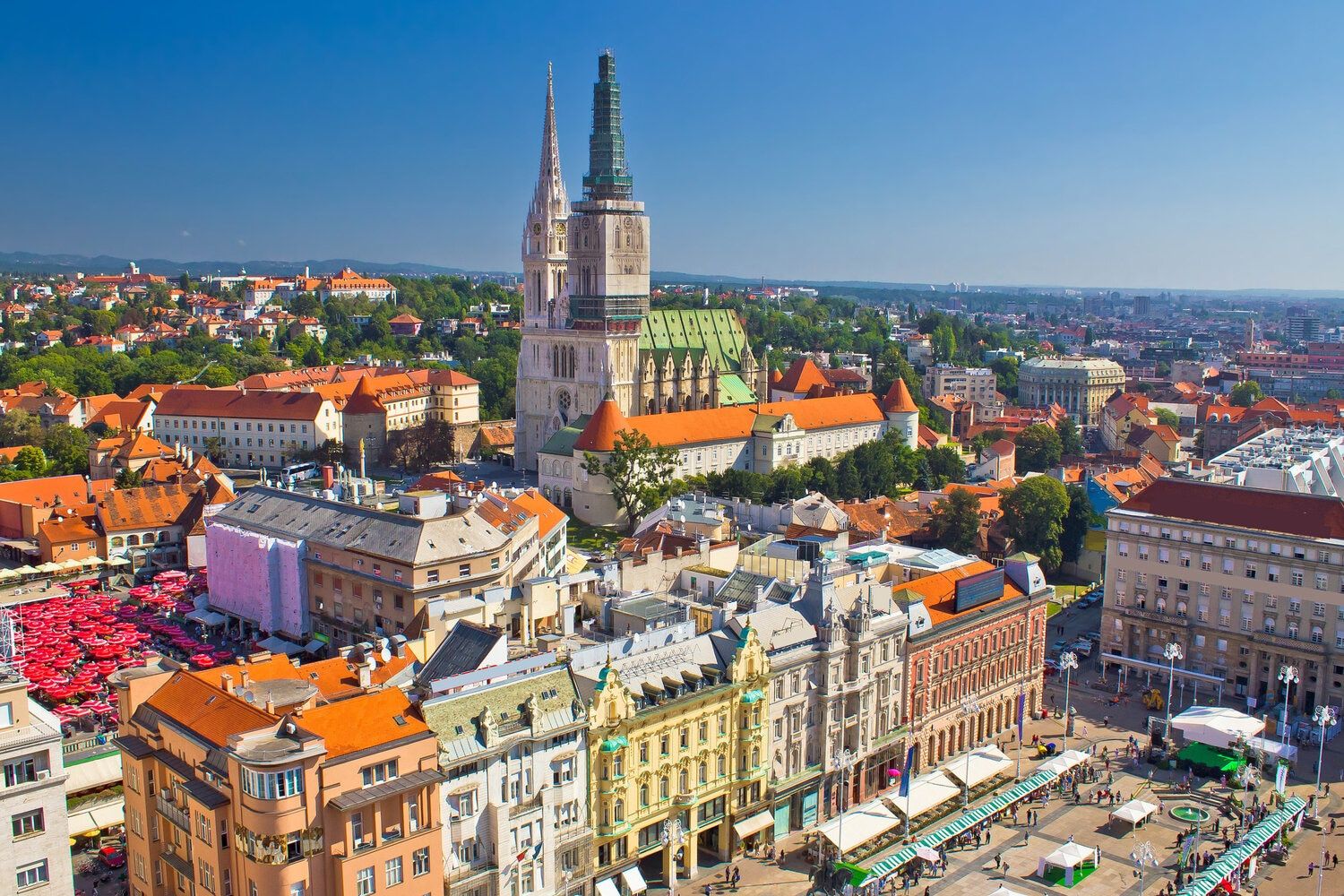
As Croatia's capital and largest city, Zagreb stands as the nation's economic, cultural, and administrative heart. This inland metropolis seamlessly blends Austro-Hungarian architectural grandeur with contemporary urban development, creating an environment that appeals to professionals and families alike. Zagreb's upper and lower towns (Gornji and Donji Grad) form the historic core, where cobblestone streets wind between well-preserved baroque buildings and vibrant café-lined squares.
The city's economic vitality manifests in its robust job market, particularly in sectors such as finance, technology, and professional services. Zagreb's startup ecosystem has grown significantly in recent years, attracting international talent and investment. The presence of numerous multinational companies provides employment opportunities for English-speaking professionals, while the Zagreb School of Economics and Management draws academic talent from across Europe.
Cultural life in Zagreb flourishes throughout the year, with world-class museums, theaters, and music venues offering regular programming. The city's famous Christmas market, voted Europe's best several years running, exemplifies Zagreb's ability to create engaging public spaces and community events. Green spaces abound, with Maksimir Park and Medvednica Mountain providing extensive recreational opportunities within easy reach of the city center.
Key considerations for Zagreb:
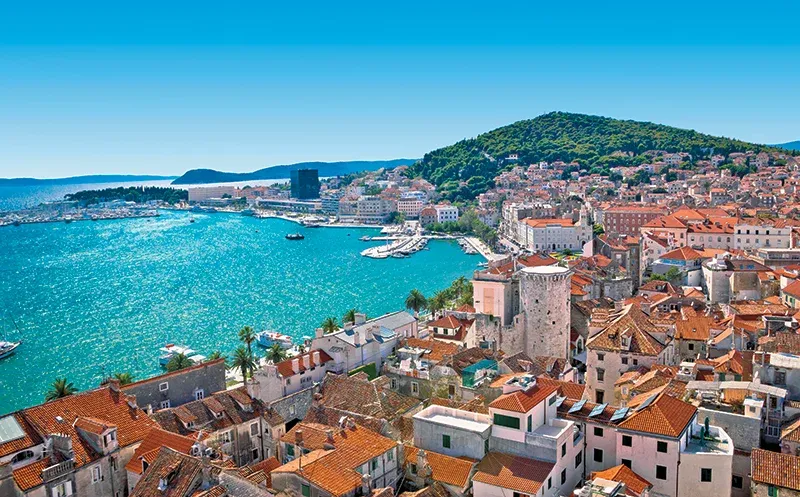
Split, Dalmatia's largest city, offers a compelling combination of historical significance and modern amenities against the backdrop of the Adriatic Sea. The UNESCO-protected Diocletian's Palace forms the city's historic core, where daily life unfolds within ancient Roman walls. This unique setting creates an extraordinary living environment where residents navigate their daily routines through a living museum.
The city has experienced significant economic growth, particularly in tourism, technology, and maritime industries. Split's tech park and university drive innovation, while the tourism sector provides year-round employment opportunities. The recent expansion of split's airport has enhanced international connectivity, making it increasingly attractive for digital nomads and remote workers seeking a coastal base.
Split's lifestyle combines urban sophistication with Mediterranean ease. The famous Riva promenade serves as the city's living room, where locals gather for coffee and conversation. The nearby islands of Brač, Hvar, and Vis offer weekend escape opportunities, while the Marjan Hill peninsula provides abundant recreational activities within the city limits.
Key advantages of Split:
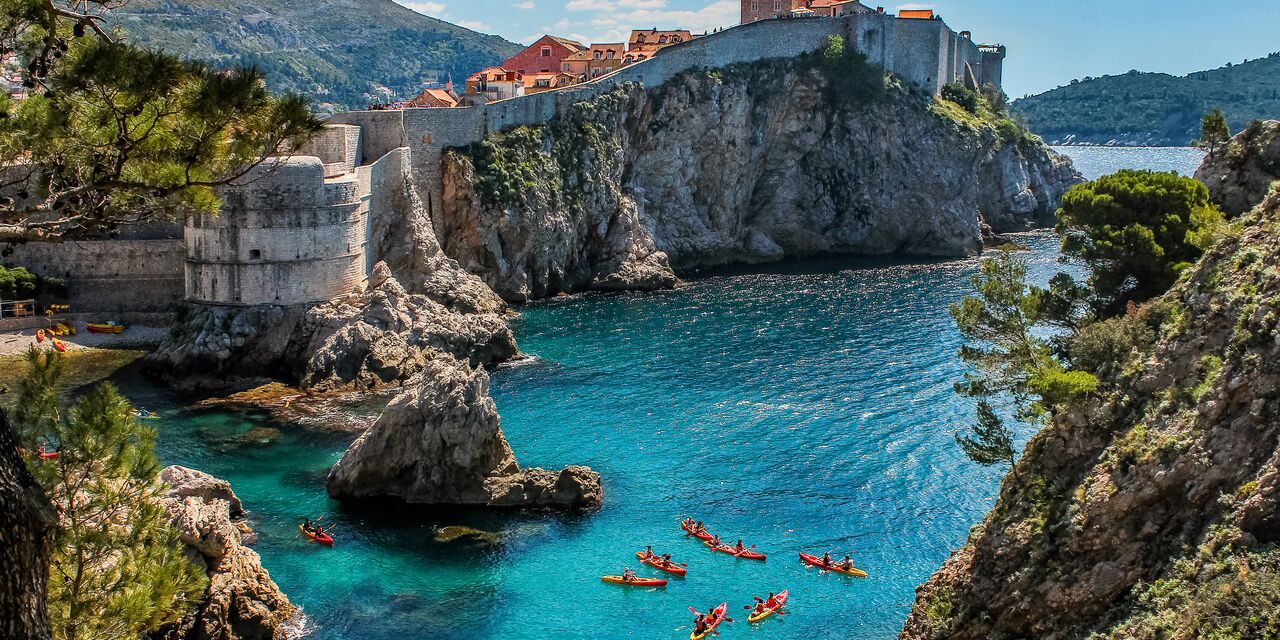
Known globally for its stunning medieval walls and crystal-clear waters, Dubrovnik offers more than just tourist appeal. The city provides a prestigious living environment with unparalleled historical surroundings. While tourism dominates the local economy, particularly during summer months, permanent residents enjoy a more tranquil experience during the off-season, when the city reveals its authentic character.
Dubrovnik's real estate market ranks among Croatia's most exclusive, with properties inside the old town commanding premium prices. However, newer developments in areas like Lapad and Gruž offer more affordable options while maintaining easy access to the city's amenities. The presence of international schools and a growing expatriate community makes Dubrovnik particularly attractive for families seeking a coastal lifestyle.
The city's sophisticated cultural scene includes the renowned Summer Festival, numerous art galleries, and year-round cultural events. Despite its relatively small size, Dubrovnik maintains excellent international connections through its airport, while the newly completed Pelješac Bridge has enhanced connectivity to the rest of Croatia.
Key features of Dubrovnik:
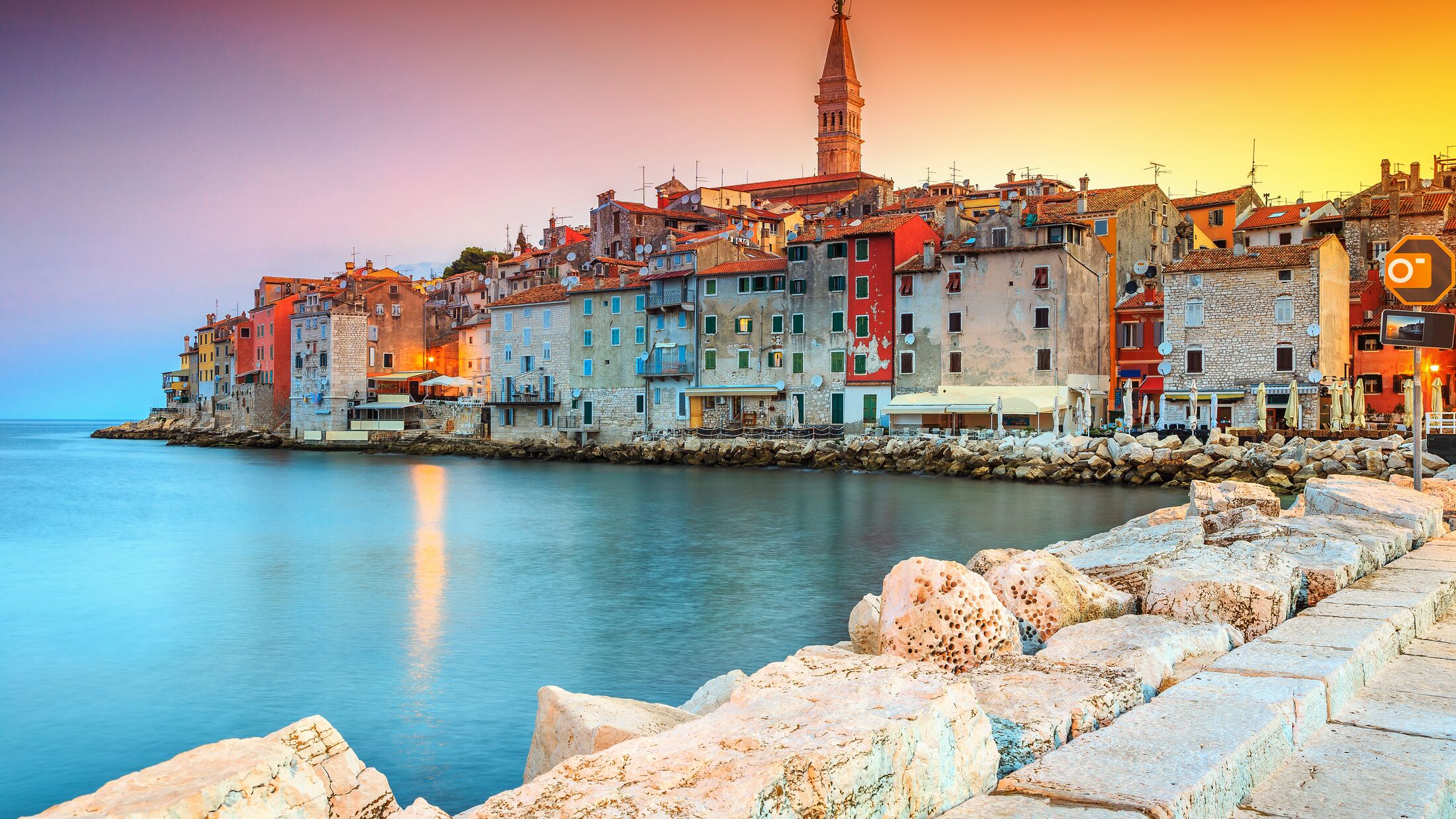
Rovinj exemplifies the unique character of Istria, where Croatian and Italian influences merge to create a distinctive cultural landscape. This picturesque peninsula city, with its characteristic church spire rising above clustered houses, offers a sophisticated living environment that attracts artists, entrepreneurs, and those seeking a more refined coastal lifestyle. The old town, perched on a former island now connected to the mainland, presents a maze of cobblestone streets and elegant squares that maintain their authentic character while accommodating modern living requirements.
The local economy benefits from high-end tourism and a growing creative sector, with numerous galleries, design studios, and artisanal workshops establishing themselves in recent years. Rovinj's gastronomic scene ranks among Croatia's finest, reflecting the region's reputation for exceptional wine, olive oil, and truffles. The surrounding countryside offers opportunities for agricultural entrepreneurship, with many expatriates successfully establishing boutique food and wine businesses.
The city's commitment to sustainable development has resulted in well-maintained public spaces and carefully regulated urban expansion. Modern residential developments in areas like Rovinjsko Selo provide contemporary housing options while preserving the historic center's integrity. The proximity to Pula Airport and strong road connections to Italy and Central Europe enhance Rovinj's accessibility.
Key aspects of life in Rovinj:
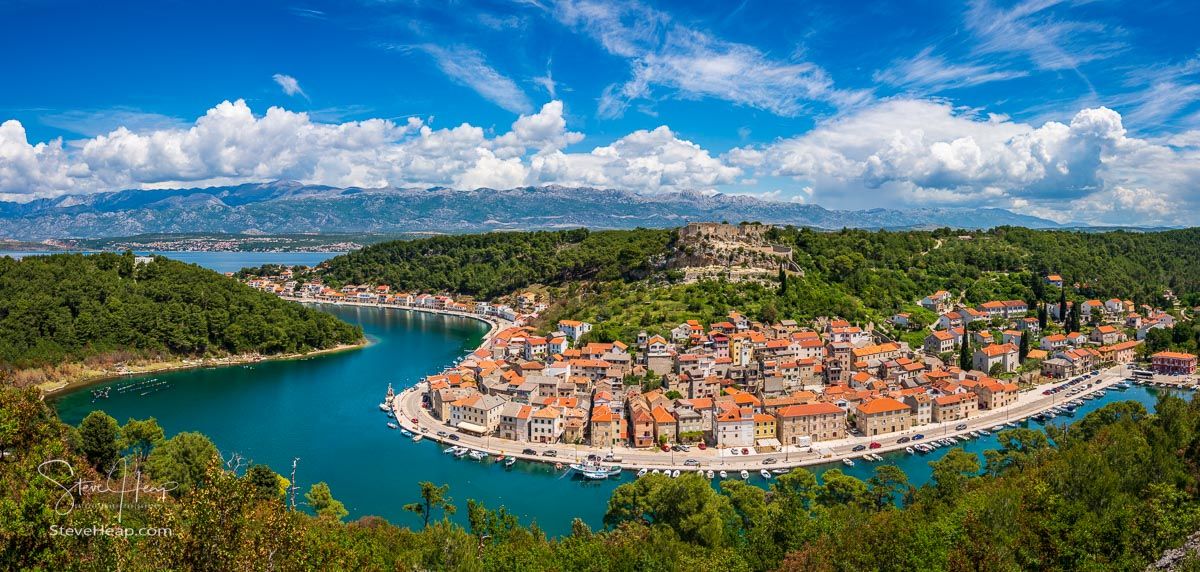
Zadar presents a compelling alternative to more tourist-oriented coastal cities, offering a balanced combination of historical interest and modern development. The city's innovative spirit manifests in unique attractions like the Sea Organ and Sun Salutation, which exemplify its forward-thinking approach to urban design. This blend of ancient Roman ruins, medieval churches, and contemporary architectural achievements creates an engaging living environment.
The University of Zadar brings youthful energy and academic opportunities to the city, while the growing technology sector provides employment prospects beyond tourism. The city's strategic position, with excellent ferry connections to nearby islands and Italy, enhances its appeal for both business and leisure. Recent infrastructure investments, including the expansion of Zadar Airport and improvements to the marina facilities, have strengthened the city's connectivity and economic potential.
The cost of living in Zadar remains more moderate than in Dubrovnik or Split, particularly in residential areas like Borik and Diklo, which offer modern apartments with sea views at relatively reasonable prices. The city's compact size makes it easily navigable while providing all essential amenities and services.
Key benefits of Zadar:
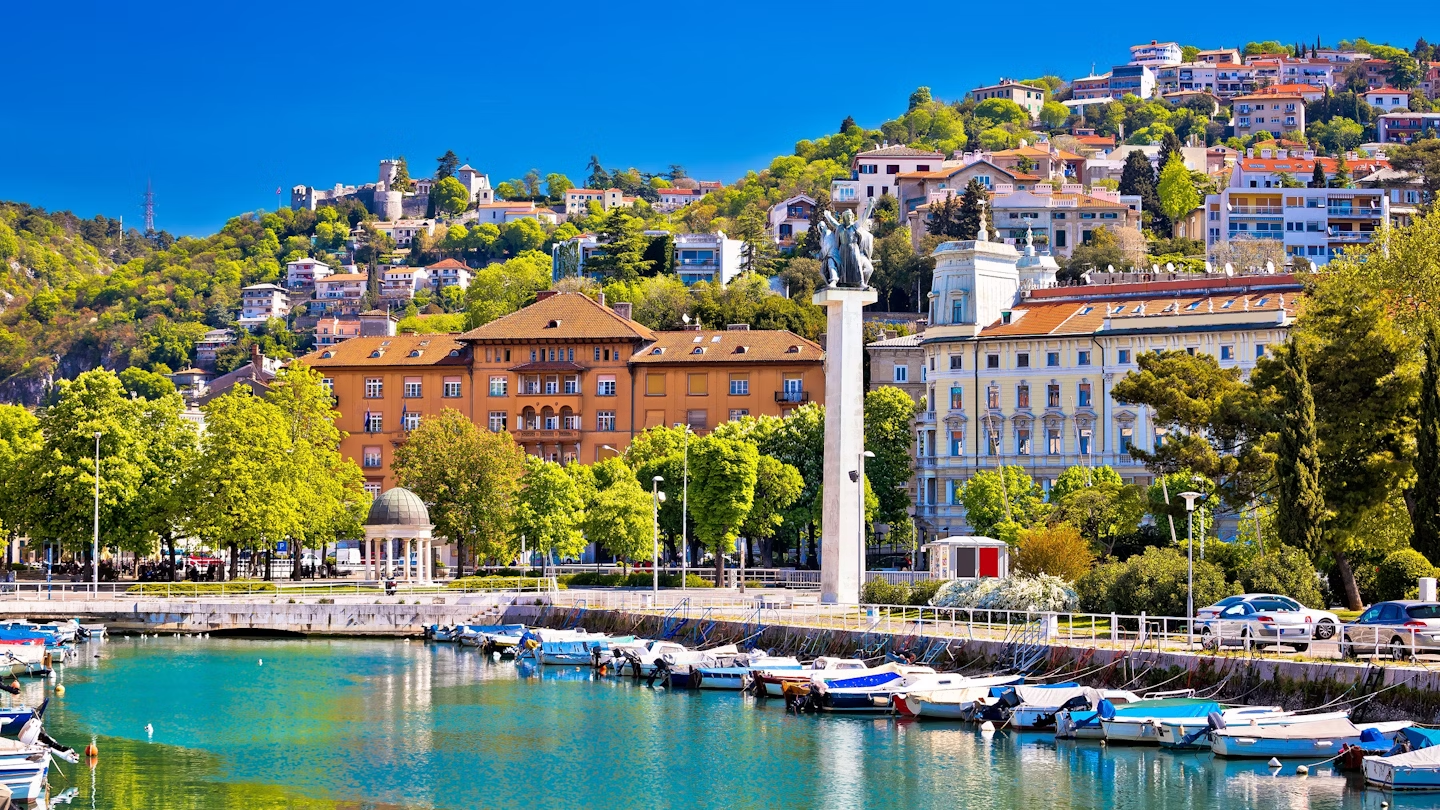
Croatia's principal seaport, Rijeka combines industrial heritage with cultural sophistication, offering a unique urban living experience. As European Capital of Culture 2020, the city underwent significant regeneration, transforming former industrial spaces into cultural venues and public areas. This renaissance has created an exciting environment for those seeking an authentic Croatian city experience away from the main tourist trails.
Rijeka's economy benefits from its port activities and growing service sector, while the university provides academic opportunities and contributes to a vibrant intellectual atmosphere. The city's industrial past has left a legacy of impressive architecture and spacious apartments in the center, many of which are being thoughtfully renovated to provide characterful modern homes.
The surrounding region offers diverse living options, from the elegant resort town of Opatija to more rural settings in the hills above the Kvarner Gulf. The city's position near the borders of Slovenia and Italy, combined with good rail and road connections, makes it an excellent base for those requiring regular travel within Europe.
Key attributes of Rijeka:
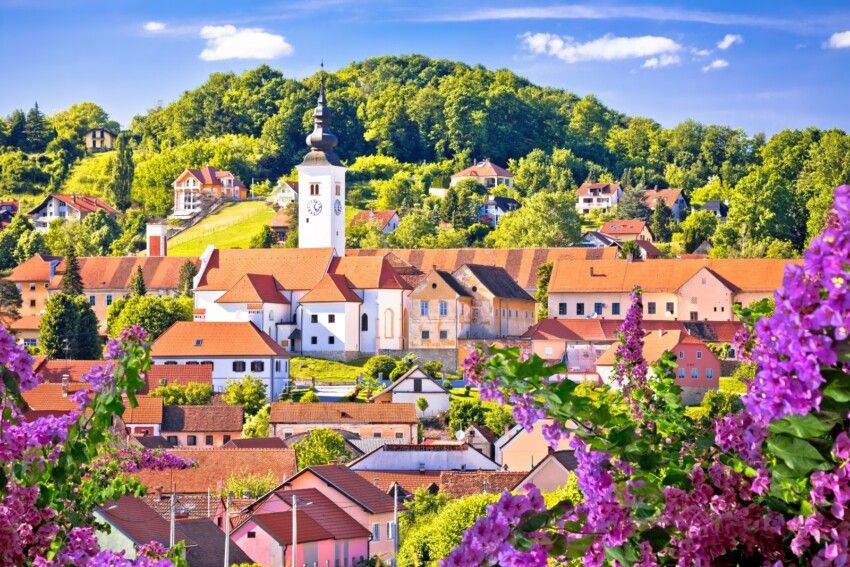
Often overlooked by international residents, Varaždin offers an exceptional quality of life in a beautifully preserved baroque setting. Known as Croatia's former capital, this northern city maintains a refined atmosphere while providing all modern amenities. The historic center, considered Croatia's best-preserved baroque urban complex, creates a distinctive living environment that combines architectural beauty with practical functionality.
The city's strong manufacturing sector and growing technology park provide diverse employment opportunities, while proximity to Zagreb and the Hungarian border enhances its strategic value for business operations. Varaždin's educational institutions, including a well-regarded university, contribute to a sophisticated social atmosphere and ensure a skilled workforce.
Housing costs in Varaždin remain notably lower than in coastal regions or Zagreb, while the quality of life metrics, including safety, education, and healthcare, rank among Croatia's highest. The surrounding countryside offers excellent opportunities for recreation and rural living options.
Key features of Varaždin:
When considering relocation with family, several Croatian cities stand out for their combination of educational facilities, safety, and family-oriented amenities. Zagreb offers the most comprehensive selection of international schools, including the American International School of Zagreb and the British International School, making it particularly attractive for families requiring English-language education. The city's extensive parks, museums, and cultural programs provide year-round activities for children of all ages.
Split and Dubrovnik have also developed strong family-friendly infrastructures, particularly in their suburban areas. The Dalmatian coast offers excellent opportunities for outdoor activities and water sports, while international school options continue to expand. Split's Meje and Žnjan districts have become especially popular with expatriate families, offering spacious apartments and proximity to beaches and parks.
Smaller cities like Zadar and Varaždin present attractive options for families seeking a more relaxed pace of life while maintaining access to quality education and healthcare. These locations typically offer better value for housing, with larger living spaces available at more reasonable costs than in the major cities.
Croatia's economy continues to diversify, creating new professional opportunities across various sectors. The technology sector shows particular promise, with Zagreb, Split, and Rijeka developing significant tech hubs. The government's digital nomad visa initiative has also sparked growth in co-working spaces and digital infrastructure across the country.
Tourism and hospitality remain significant employers, particularly along the coast, but the sector increasingly focuses on year-round tourism initiatives that provide more stable employment opportunities. The growth of boutique hotels and specialised tourism services has created openings for those with international experience and language skills.
The country's strategic position within the European Union has attracted various multinational companies, establishing regional offices particularly in Zagreb and Split. These operations frequently seek professionals with international experience and English language skills, offering competitive packages that often include relocation assistance.
The Croatian real estate market presents varied investment opportunities across different regions. Coastal properties, particularly in historic centres, continue to appreciate steadily, though prices in premier locations like Dubrovnik's Old Town have reached premium levels. emerging areas along the coast, especially in developing suburbs of major cities, often offer better value with strong growth potential.
Inland properties, particularly in Zagreb's growing business districts and Varaždin's historic centre, present opportunities for both residential and commercial investment. The renovation of period properties in these areas has become increasingly popular, offering the potential for significant returns when executed thoughtfully.
Relocating to Croatia requires careful planning and consideration of various factors specific to your chosen destination. Each location presents its own unique advantages and challenges, from the bustling energy of Zagreb to the coastal charm of Split or the historic elegance of Varaždin.
Ready to begin your journey to Croatia? Deliver1 specialises in managing international relocations to all major Croatian cities and regions. Our comprehensive moving services ensure a smooth transition to your chosen destination, with expert handling of everything from packing and transportation to customs clearance and delivery.
Contact us today for a personalised consultation and detailed quote for your move to Croatia.
We love hearing from you-so please get in touch with any questions or queries.
We love hearing from you-so please get in touch with any questions or queries.
Working hours
Mon - Sat: 08:00 - 17:00
Sun: Closed
Call
+44 3330 907053Location
Unit 3, Newyears Green Lane
Newyears Green
Uxbridge
UB9 6LX
United Kingdom
